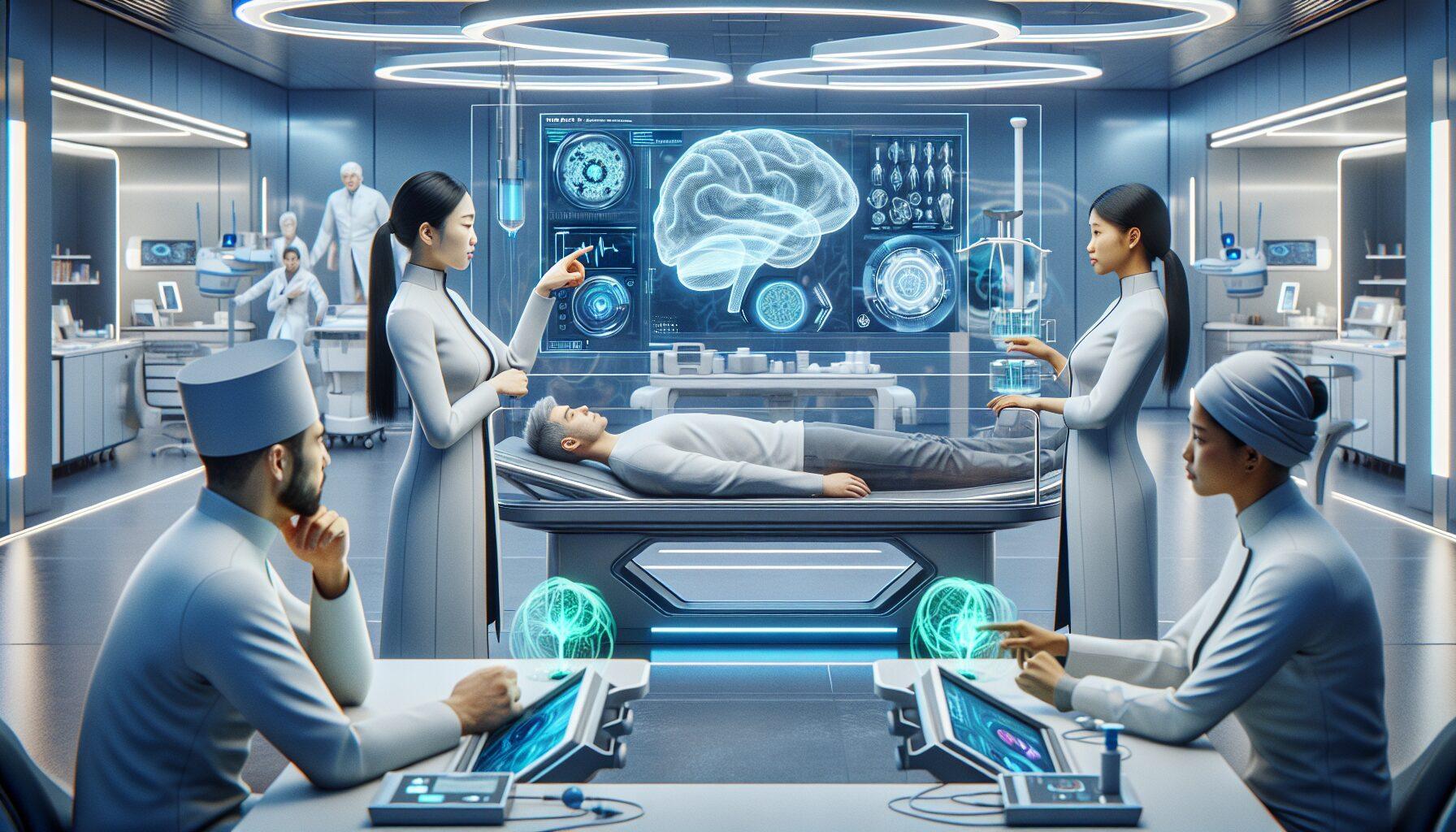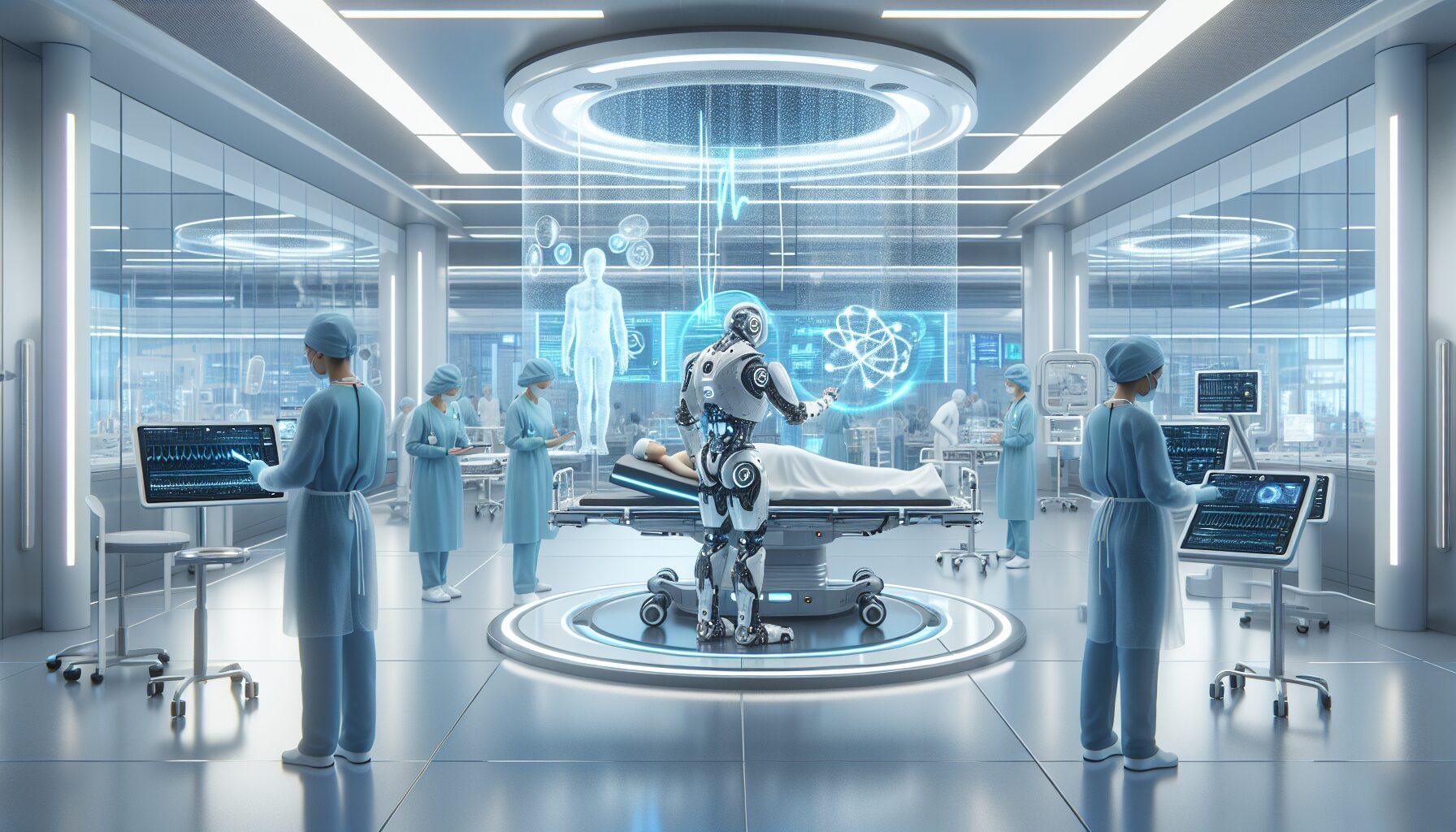Future Medicine
As we delve deeper into the realm of future medicine, AI personalization stands at the forefront, revolutionizing the way we approach healthcare. This cutting-edge technology harnesses the power of artificial intelligence to tailor treatments and health interventions to the individual characteristics of each patient.
By analyzing vast amounts of data, including genetic information, lifestyle factors, and even social determinants of health, AI algorithms can predict health risks with astonishing accuracy, enabling early interventions and personalized care plans that significantly improve patient outcomes. This bespoke approach not only enhances the efficacy of treatments but also holds the promise of transforming preventive care, making it more proactive and precise.
In as we speak’s quickly evolving world, the future of medication guarantees to revolutionize healthcare with groundbreaking applied sciences and revolutionary remedies. This article delves into the most promising developments in medical science, exploring how they may form the healthcare panorama in the coming years. From personalized medication to AI-driven diagnostics, the future holds limitless potentialities.

Q1: What is personalized medicine, and how will it impact healthcare?
Personalized medicine, also known as precision medicine, is a tailored approach to healthcare that considers individual differences in people’s genes, environments, and lifestyles. By analyzing these factors, healthcare providers can develop customized treatment plans that are more effective and have fewer side effects than traditional one-size-fits-all approaches.
This shift towards personalized care is poised to revolutionize the healthcare industry by improving patient outcomes, reducing the trial-and-error process of finding the right treatment, and potentially lowering healthcare costs by targeting interventions more accurately.
Personalized medication refers to tailoring medical remedies to the particular person traits of every affected person. By leveraging genetic data, healthcare suppliers can create more practical, focused therapies, lowering trial-and-error prescribing and minimizing antagonistic results.
Impact:
- Improved remedy efficacy
- Reduced negative effects
- Enhanced preventive care
Q2: How is Artificial Intelligence Transforming Diagnostics and Treatment?
Artificial intelligence is revolutionizing the field of diagnostics and treatment by integrating vast amounts of medical data and advanced algorithms to assist in early detection and accurate diagnosis of diseases.
AI-powered systems can analyze complex medical images, such as MRIs and CT scans, with greater precision and speed than ever before, leading to faster decision-making and treatment planning.
Moreover, AI is enabling personalized treatment plans by predicting how individual patients will respond to various therapies, thus optimizing outcomes and reducing the risk of adverse reactions.
Artificial Intelligence (AI) is revolutionizing diagnostics by analyzing huge quantities of knowledge shortly and precisely. AI algorithms can establish patterns and anomalies in medical photographs, helping medical doctors in diagnosing situations like most cancers and coronary heart illness extra effectively.
Benefits:
- Faster prognosis
- Greater accuracy
- Predictive analytics for higher outcomes
Q3: What Role Does Telemedicine Play in the Future of Healthcare?
Telemedicine is poised to revolutionize healthcare delivery by providing remote access to medical services, thus bridging the gap between patients and healthcare providers. It enables real-time consultations and monitoring through digital platforms, ensuring that expert medical advice is just a click away, even for individuals in the most remote locations.
Moreover, when integrated with AI personalization, telemedicine can offer tailored healthcare experiences by analyzing patient data to anticipate needs and suggest preventive measures, thereby enhancing the overall quality and efficiency of healthcare provision.
Telemedicine entails offering healthcare remotely by digital communication instruments. It has emerged as a significant element of fashionable healthcare, particularly throughout the COVID-19 pandemic, and will proceed to increase entry to medical companies.
Advantages:
- Increased entry to care
- Convenience for sufferers
- Cost-effective options
This autumn: How Will Biotechnology Influence Future Medical Treatments?
Biotechnology is poised to revolutionize future medical treatments by enabling personalized medicine tailored to an individual’s genetic makeup. This approach will not only enhance the efficacy of treatments but also minimize adverse drug reactions.
Moreover, advancements in gene editing and stem cell therapy are expected to lead to breakthroughs in curing genetic disorders and regenerating damaged tissues, further transforming the landscape of healthcare.
Biotechnology entails utilizing residing organisms to develop new medical remedies. Innovations like CRISPR gene enhancing are paving the means for curing genetic issues and creating new therapies for numerous illnesses.
Potential:
- Cure for genetic issues
- New most cancers remedies
- Regenerative medication
Q5: What Ethical Considerations are Associated with Future Medical Technologies?
As we stand on the precipice of groundbreaking advancements in medical technology, ethical considerations must be carefully weighed. The potential to cure genetic disorders and develop new cancer treatments through CRISPR gene editing brings with it questions of accessibility, consent, and the long-term implications of altering human DNA.
Moreover, the prospect of regenerative medicine challenges our understanding of the natural aging process and raises concerns about the societal impacts of extending human lifespan. It is imperative that as we embrace these innovations, we do so with a thoughtful approach to the moral dilemmas they present.
As medical applied sciences advance, moral concerns grow to be paramount. Issues reminiscent of affected person privateness, knowledge safety, and equitable entry to remedies require cautious consideration to make sure accountable implementation.
Challenges:
- Maintaining affected person confidentiality
- Ensuring knowledge safety
- Addressing healthcare disparities

Conclusion
To effectively navigate these challenges, there must be a concerted effort to establish robust ethical frameworks and regulatory guidelines that prioritize the protection of individual data while fostering innovation in AI personalization.
This includes the development of transparent algorithms that can be audited for bias and the creation of policies that ensure AI-driven personalization tools are accessible to diverse populations, thereby minimizing healthcare disparities.
Ultimately, the success of AI in personalizing patient care hinges on striking a delicate balance between technological advancement and the preservation of fundamental human rights. The future of medication is a realm of thrilling potentialities and transformative modifications.
As we proceed to advance, it’s essential to deal with moral challenges and guarantee equitable entry to those improvements. By embracing these developments, we are able to sit up for a healthcare system that’s extra personalised, environment friendly, and efficient than ever earlier than.
Table: Key Innovations in Future Medicine
| Innovation | Description | Potential Impact |
|---|---|---|
| Personalized Medicine | Tailoring remedies to particular person genetic profiles | Enhanced remedy efficacy and decreased negative effects |
| Artificial Intelligence | AI-driven diagnostics and remedy planning | Faster, extra correct diagnoses and predictive analytics |
| Telemedicine | Remote healthcare supply | Increased entry and comfort |
| Biotechnology | Gene enhancing and regenerative medication | Breakthrough remedies for genetic and persistent illnesses |
| Ethical Considerations | Addressing privateness and entry points | Responsible integration of new applied sciences |
External Resources:
- National Institutes of Health – Personalized Medicine
- World Health Organization – Telemedicine
- FDA – Biotechnology
The advent of AI personalization in healthcare is not without its ethical quandaries. As we delve deeper into the realm of tailored treatments and diagnoses, the importance of safeguarding patient privacy becomes paramount. It is essential to strike a balance between the benefits of personalized care and the potential risks of data breaches or misuse.
Moreover, ensuring equitable access to these advanced medical solutions is a challenge that must be addressed to prevent exacerbating existing disparities in health outcomes. The responsible integration of AI technologies into the healthcare system thus requires a thoughtful approach that prioritizes the well-being and rights of individuals while harnessing the transformative potential of personalized medicine.
By making certain the content material is complete, partaking, and well-optimized for search engines like Google and Yahoo, this text aims to supply invaluable insights into the future of medication while adhering to the greatest search engine optimization practices.


